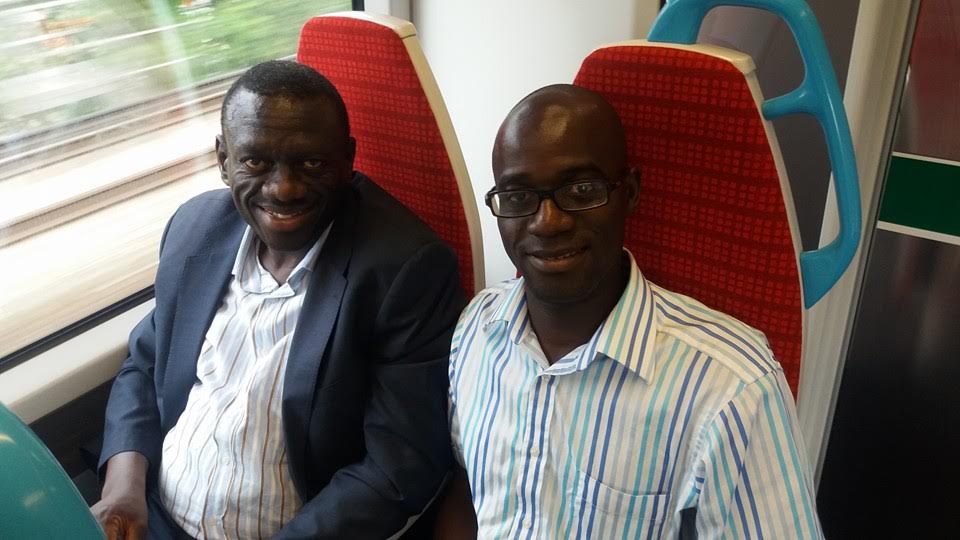Uganda opposition leader Ret. Col. Dr. Kizza Besigye is today in London UK where he will speak to Ugandans living in the diaspora about the prevailing political situation in the country.
On Arrival in London Thursday, Besigye took a train ride and spent time with some of the organisers.
Dr Besigye will address the meeting organised by the Forum for Democratic Change (FDC) UK Chapter at Hilton Hotel in London.

In an interview with Voice of America’s Daybreak Africa on Thursday, Dr Besigye said Ugandans living in the diaspora have two roles.
“One is to continue their engagement with the governments of the countries where they stay and indeed to solicit their support in their engagement with the regime at home, and also their engagement with those of us who are challenging the status quo,” he said.
Today will be a packed day for the Opposition leader, punctuated with interviews and media briefings.
Prior to his speech, Dr Besigye will also separately meet with the FDC UK Chapter members and Power 10 (P10) members.
Power 10, formed prior to the February general election to among others, “protect votes on polling day”, has a diaspora arm whose aim is “to generate awareness about how people can effectively exercise “peoples’ power” to cause the desired change, and to eliminate the attendant fears associated with the NRM violence during elections”.
Dr Besigye’s wife and the executive directir of Oxfam International, Ms Winnie Byanyima, is also expected to address the meeting according to the official programme.
Dr Chris Kamugisha, the chairman FDC UK,and other two guest speakers will also address the meeting.
Before leaving the country, Dr Besigye rejected the prospect of religious leaders and elders to lead the proposed political dialogue between the Opposition and the ruling NRM party, saying they (religious leaders and eleders) have a stake in any discussion about the country.
He set conditions for the dialogue including a mutually agreed agenda, an agreement on who convenes and moderates the dialogue, who will be part of the dialogue and a clear understanding of how the decisions of the dialogue will be implemented.
More than 55,000 Ugandans are registered and are legally living in the UK with many more surviving in the former colonial master illegally.



